Canada's most expensive megaprojects under construction
Canada's most expensive megaprojects under construction
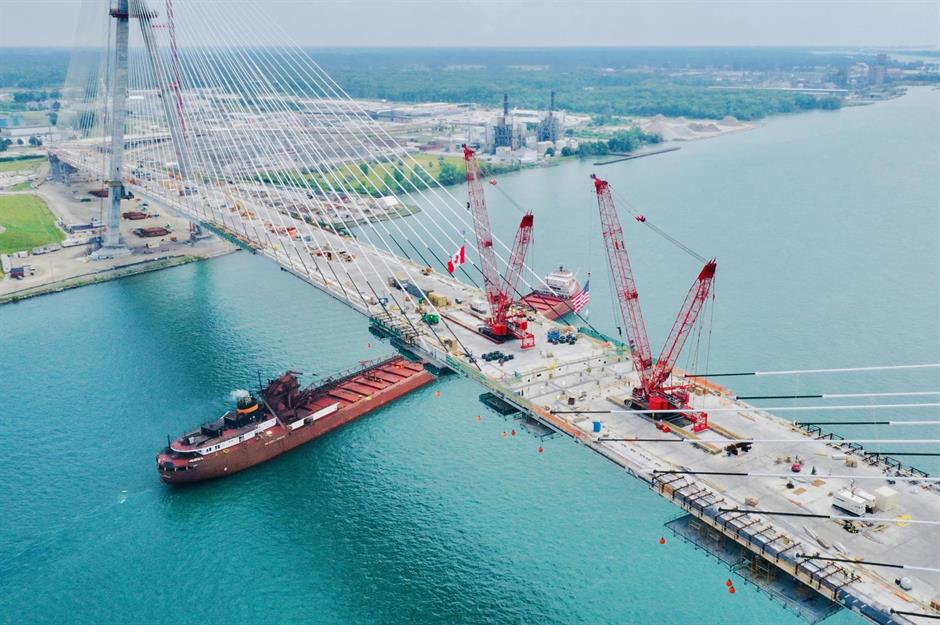
In his election campaign, Ontario Premier Doug Ford said he's committed to building a 31-mile-long (50km) tunnel under Highway 401. Costing as much as $55–$60 billion, according to some estimates, the shockingly high price is more than double the cost of Canada’s most expensive megaproject.
In the midst of a construction boom, federal and provincial governments are spending billions of dollars on transit, sewers and other infrastructure. Read on to discover 15 of the biggest megaprojects currently under construction across Canada, ranked from least to most expensive, and find out when they’ll be ready.
All dollar amounts in Canadian dollars unless indicated.
15. Fraser River Tunnel Project, British Columbia: $4.15 billion
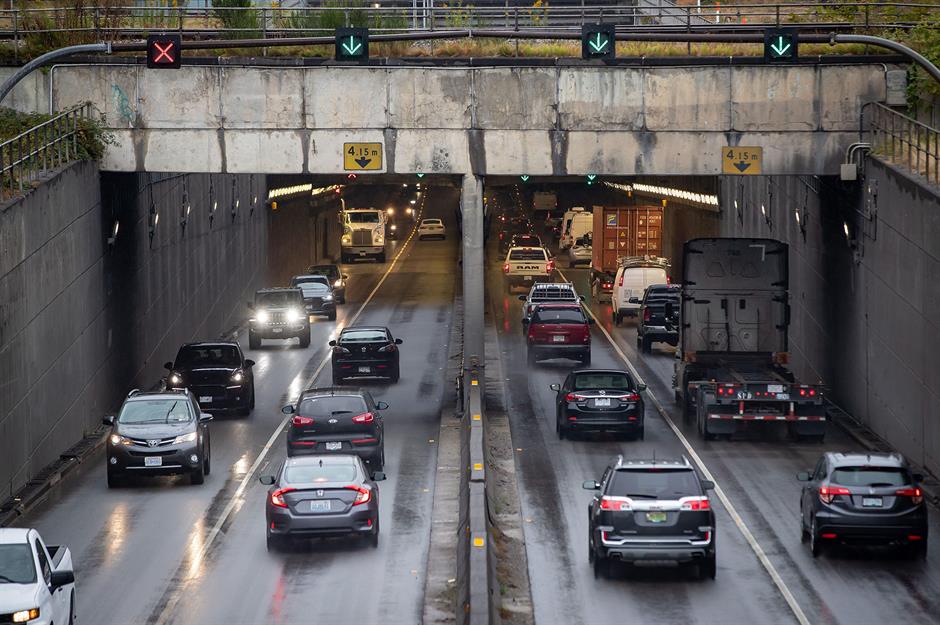
Opened in 1959 as a vehicle-only crossing under the Fraser River, the four-lane George Massey Tunnel doesn’t meet modern seismic standards or the region's traffic demand. A replacement was announced in 2012, with designs for a 10-lane bridge costing $3.5 billion revealed four years later.
But the project soon hit a bump in the road. Amid opposition, the province cancelled procurement of the bridge in 2017 and launched an independent review. The results showed a smaller bridge would be sufficient and that a new eight-lane tunnel could be less expensive.
15. Fraser River Tunnel Project, British Columbia: $4.15 billion
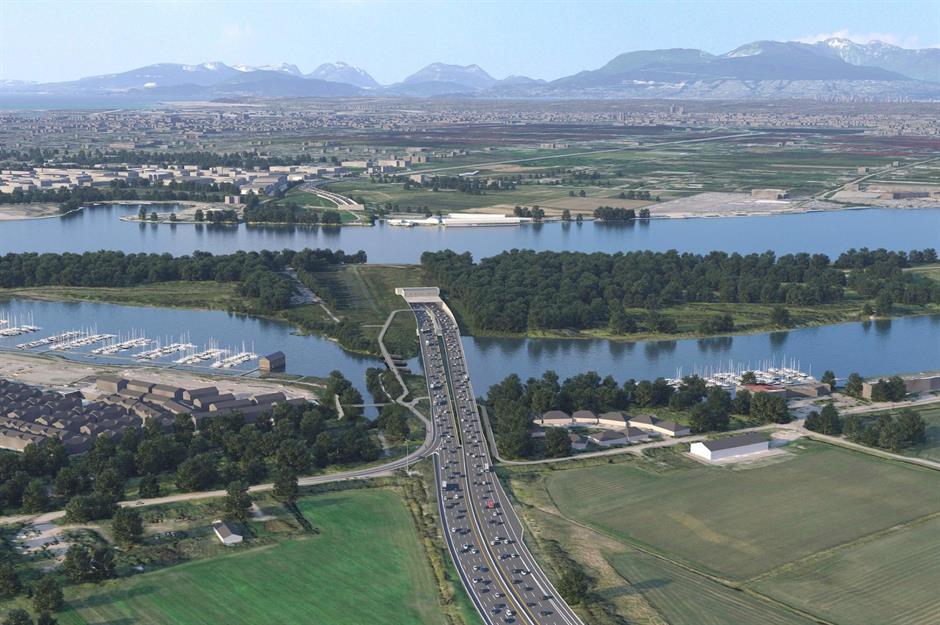
The province announced it would build a toll-free, eight-lane tunnel to replace the George Massey Tunnel in 2021, saying the project would cost $4.15 billion and be completed by 2030. In the summer of 2024, it selected the design and build contractor, which plans to start major construction in 2026.
Built as an immersed tube tunnel, the replacement crossing will have three traffic lanes, a dedicated public transit lane in each direction, and a separate path for walking and biking.
Sponsored Content
14. Hazel McCallion Light Rail Transit, Ontario: $4.6 billion
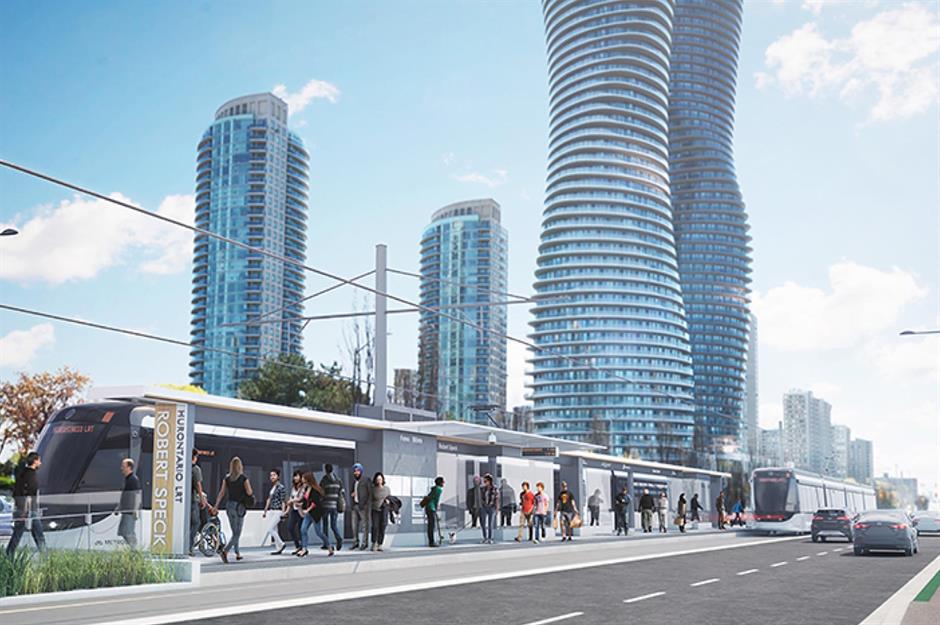
A $4.6 billion contract awarded in October 2019 signalled the launch of the 11.1-mile (18km) Hurontario rapid transit project connecting Mississauga and Brampton, now named the Hazel McCallion LRT to honour Mississauga's fifth mayor, who passed away in 2023.
The total bill will cover the cost of design, construction, finance, operation and maintenance for 30 years. The transit project will include 19 stops as well as a maintenance and storage facility for the light rail vehicles, with the LRT line along Hurontario Street initially expected to be completed in the fall of 2024.
14. Hazel McCallion Light Rail Transit, Ontario: $4.6 billion
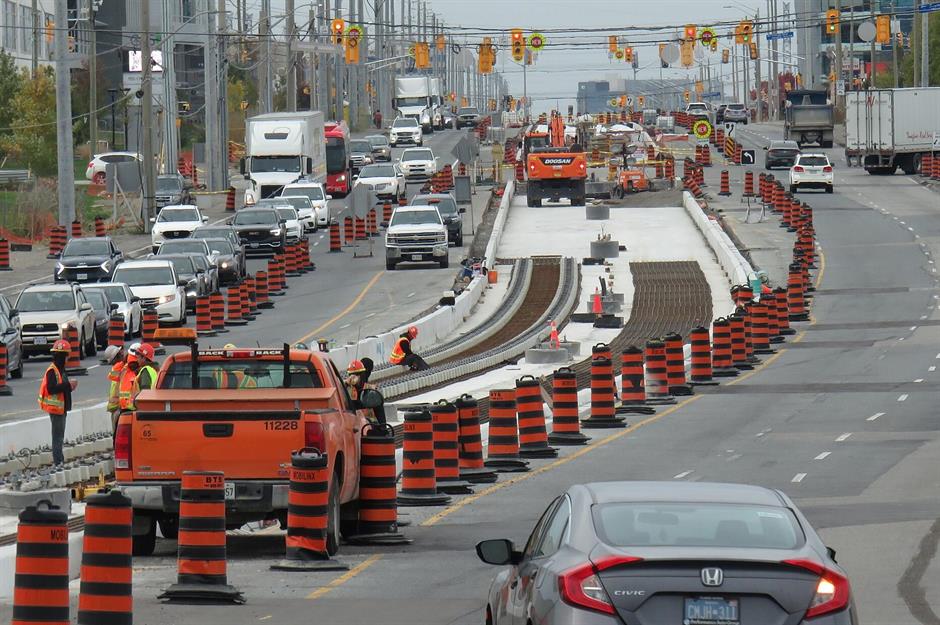
Construction started in 2020 but as yet, no opening date has been announced. The COVID-19 pandemic caused delays to the project pipeline but is not solely to blame; additional problems have arisen as the consortium building the line faces legal disputes with subcontractors and issues with track tolerances. These delays have caught the attention of credit rating agency S&P Global, which has warned the project may not be able to pay its creditors.
Meanwhile, Ontario officials agreed in 2024 to extend the LRT by building the previously cut Mississauga loop and bringing the line into downtown Brampton. The Ford government said earlier this year it would explore options for tunnel construction for the Brampton portion of the project.
13. Eglinton Crosstown West Extension, Ontario: $4.7 billion
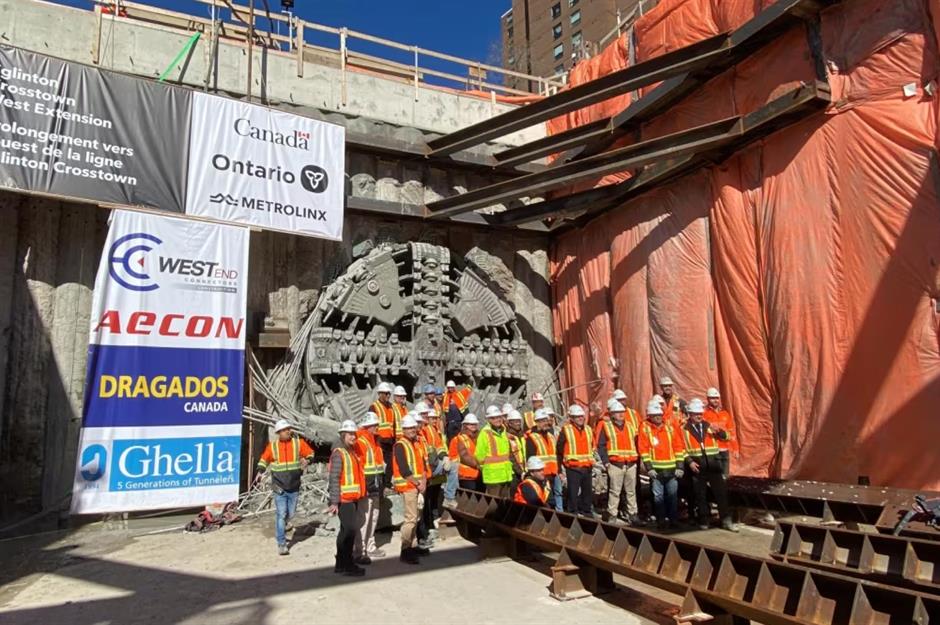
Further down on this list you'll find Toronto’s Eglinton Crosstown LRT line, which is one of Canada’s most expensive infrastructure projects ever. Construction on its extension started in 2021 – and the project has proved so expensive we've included it on the list in its own right.
The 5.6-mile-long (9km) Eglinton Crosstown West Extension will expand the line into Etobicoke and Mississauga, with discussions underway to extend it another 3.1 miles (5km) to Pearson International Airport.
Sponsored Content
13. Eglinton Crosstown West Extension, Ontario: $4.7 billion
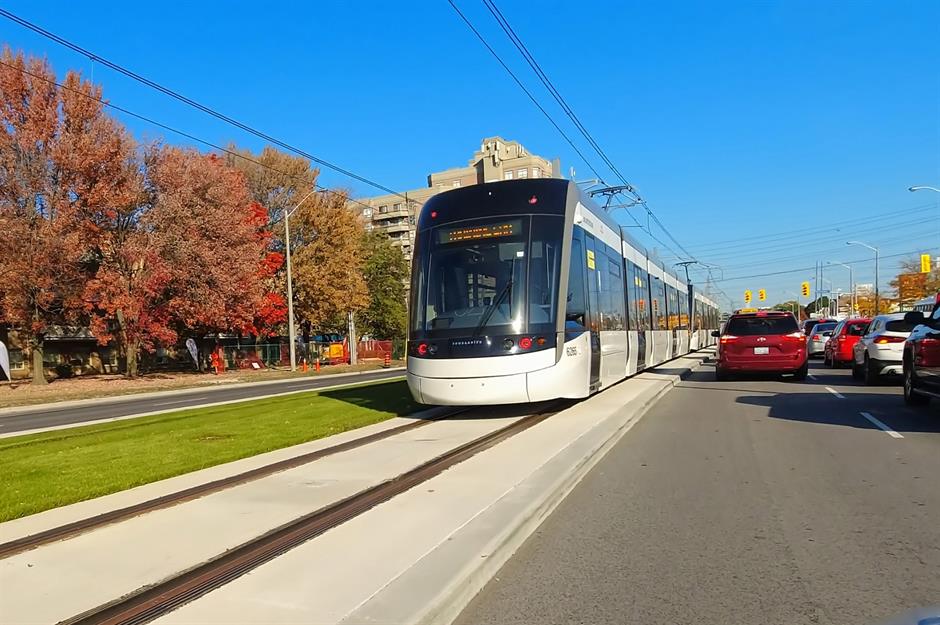
Most of the 9km route is in tunnels, with one elevated section to avoid potential flooding. The underground work is divided into two sections with tunnel excavation completed on the western side and the second tunnelling contract awarded in February 2024. With parts of the project still in procurement, the final cost is not yet known.
The Eglinton Crosstown West Extension is one of four priority subway projects in the Toronto area worth $28.5 billion, the province announced in 2019. At that time, the estimates put the extension at $4.7 billion.
12. Ottawa LRT Phase 2, Ontario: $4.9 billion
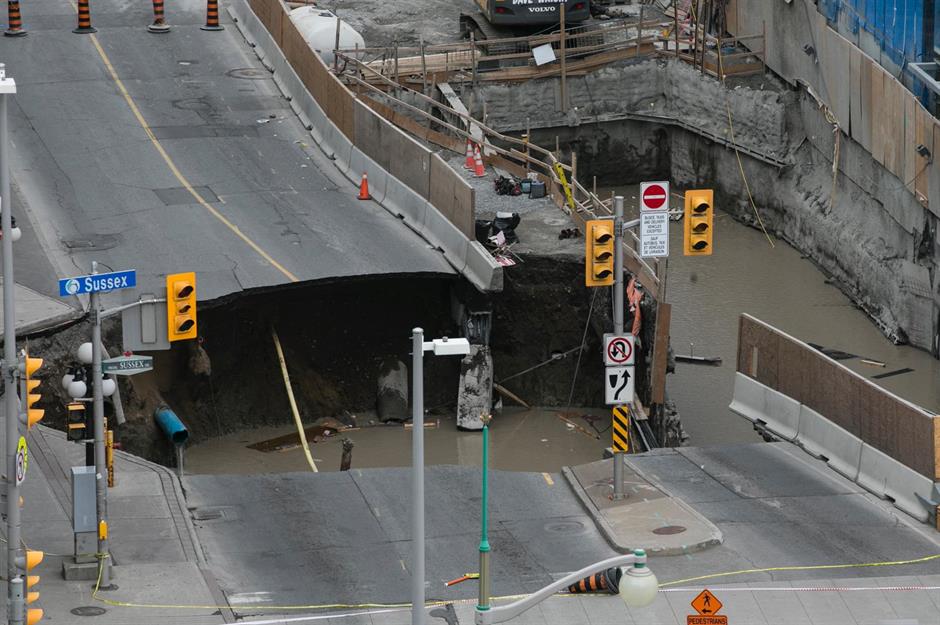
Ottawa’s $2 billion Confederation Line LRT faced numerous issues, including massive sinkholes (pictured), delays during construction and train derailments. And that was only phase 1; phase 2 is now under construction.
Approved in 2019, it was announced the 27.3-mile-long (44km) rail extension would add 24 stations to the line by the end of 2025 at a total cost of $4.6 billion.
12. Ottawa LRT Phase 2, Ontario: $4.9 billion
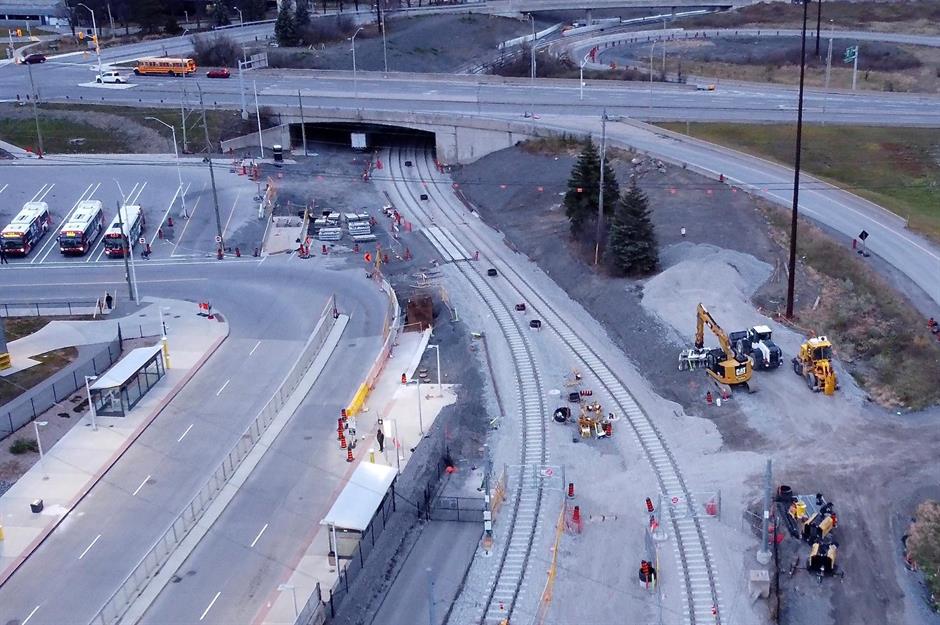
Contractors have argued that government restrictions during the COVID-19 pandemic caused delays which, combined with supply chain issues, have meant the project’s fund for contingencies quickly became exhausted and needed to be replenished.
According to the latest estimates, the price is now nearly $5 billion and the completion date has been pushed back to 2027.
Sponsored Content
11. Parliament Hill Centre Block Rehabilitation, Ontario: $5 billion
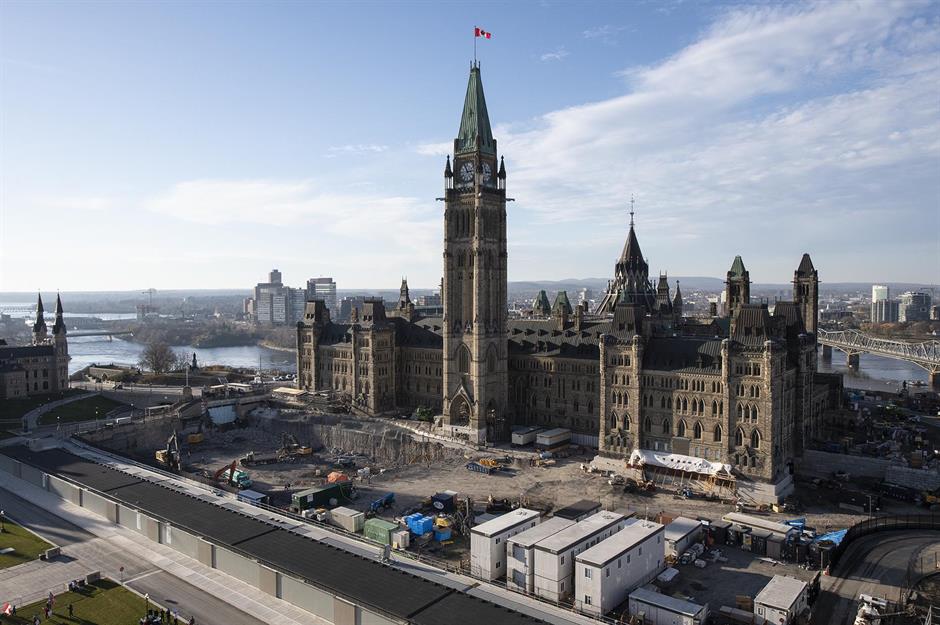
Centre Block and selected sections of Parliament Hill in Ottawa are undergoing an incredibly complex rehabilitation. The landmark building has endured extensive damage to its historical interiors, from crumbling mortar to damaged sculptures, frescoes and stained glass.
Along with restoring these features, the project will install hundreds of piles to make the facilities earthquake-proof and upgrade the original electrical system, which can’t safely handle modern technology. There’s also a massive excavation to construct a new welcome centre that will bring visitors underneath the building to enter, effectively adding another storey.
11. Parliament Hill Centre Block Rehabilitation, Ontario: $5 billion
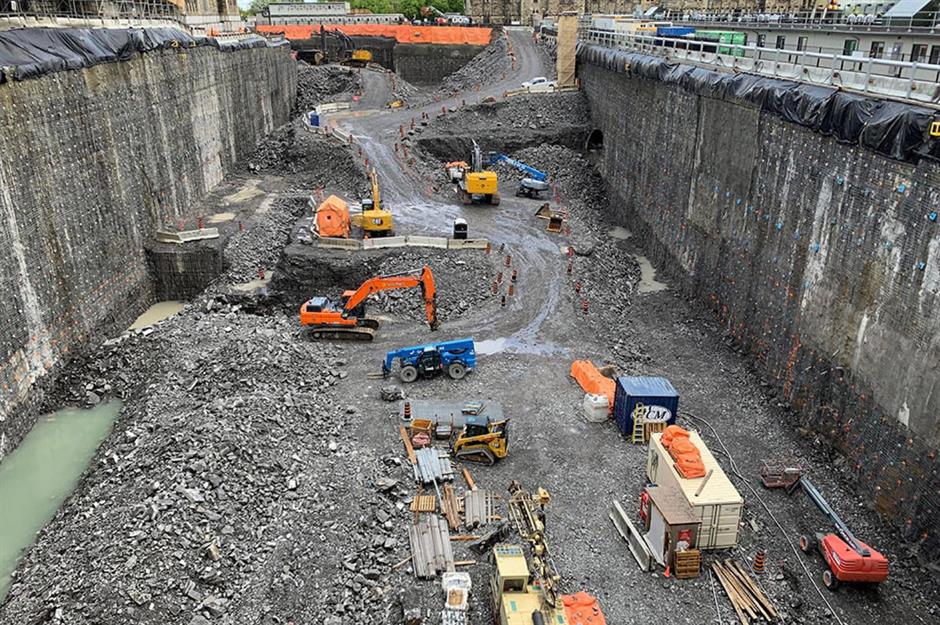
There isn’t a definite price tag for this combination of heavy civil construction and detailed artefact restoration, but current estimates range between $4.5 and $5 billion.
Likewise, the deadline has not yet been finalized. The project is expected to reach completion between 2030 and 2031, with the Centre Block reopening about a year later. However, two major work stoppages have already occurred due to the convoy demonstrations and labour strikes in 2022, so watch this space.
10. Scarborough Subway Extension, Ontario: $5.5 billion
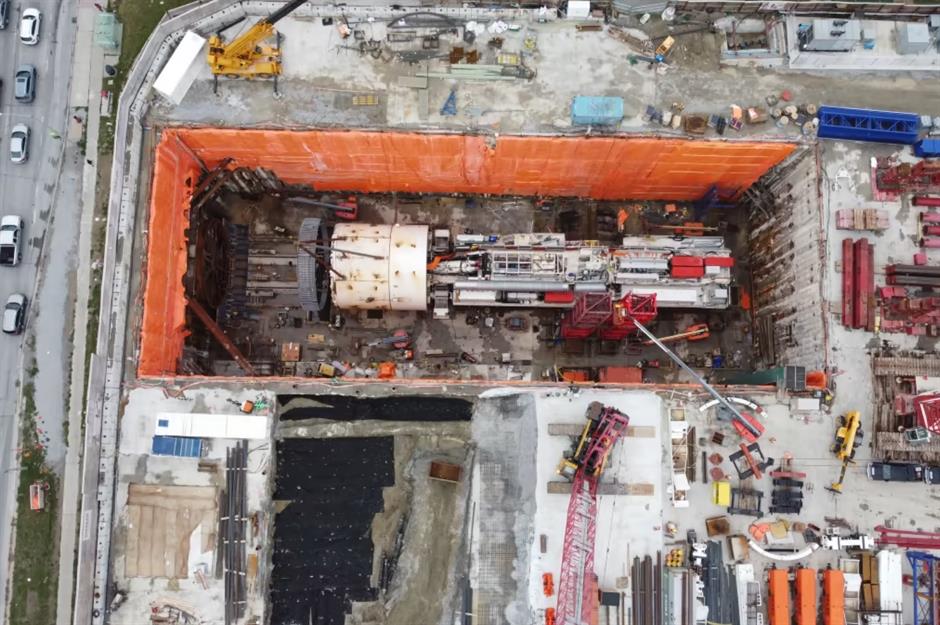
Another project related to the $28 billion of subway investment in Ontario, the Scarborough Subway Extension will add nearly 5 miles (8km) to Line 2 going further north into Scarborough, with three new stations.
Most of this new line will be underground and tunnelling construction is already underway.
Sponsored Content
10. Scarborough Subway Extension, Ontario, $5.5 billion
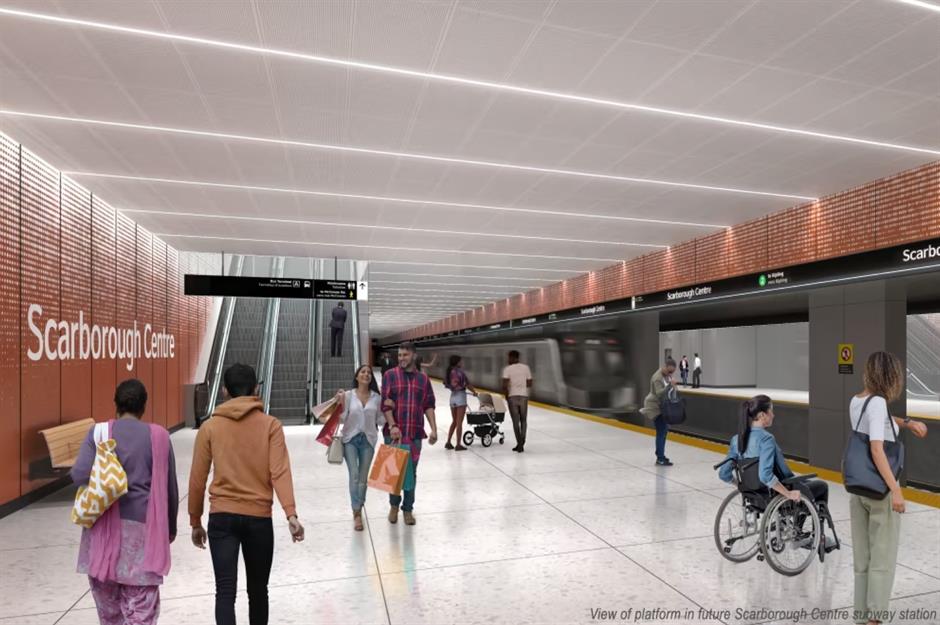
The project has been in development for over 10 years, with officials initially studying a three-stop option. However, in 2013, they instead developed a $3.87 billion 'one-stop' subway concept that was supposed to be in service by 2027.
In 2019, officials reverted to the current three-stop configuration, with an updated price tag estimated at $5.5 billion and a target delivery date of 2029–2030.
9. Surrey Langley SkyTrain, British Columbia: $6 billion
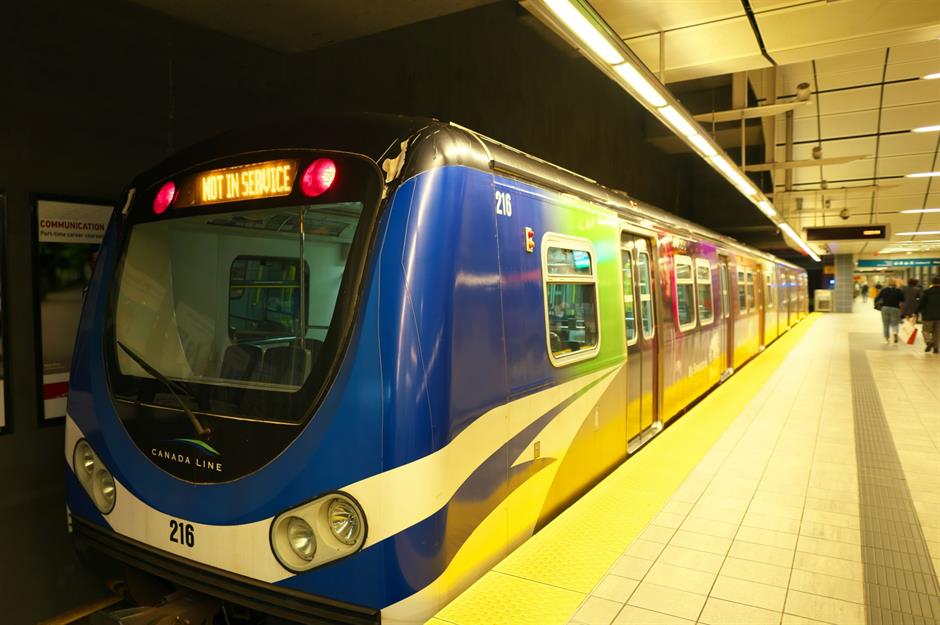
Vancouver’s SkyTrain rapid transit system first opened in December 1985 in time for the city to host the World Expo in 1986. Its first line was aptly named the Expo Line. It’s seen numerous extensions since, and now the province is extending it to Langley City Centre.
Initial estimates suggested that the 9.9-mile-long (16km) Surrey Langley SkyTrain Project, which will run entirely on an elevated guideway along Fraser Highway, would cost $4 billion and open for service in 2028.
9. Surrey Langley SkyTrain, British Columbia: $6 billion
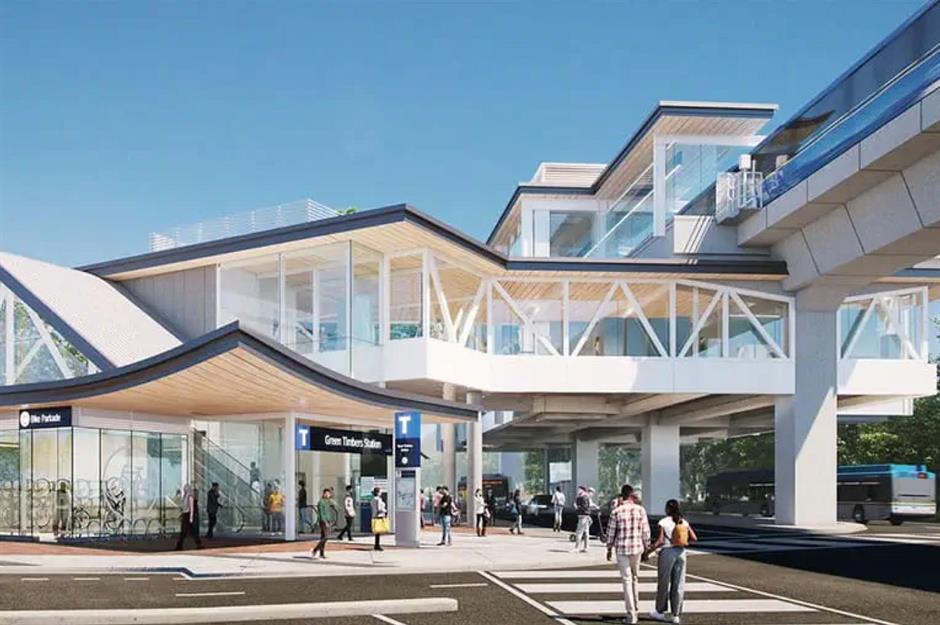
In March and April 2024, the project managers awarded contracts to design and build the elevated guideway and the line’s eight stations.
Last August, however, the Ministry of Transportation announced the megaproject would now cost $6 billion and wouldn't open until 2029. It attributed the delay and price increase to rising inflation costs, supply chain pressures and labour market challenges.
Sponsored Content
8. Gordie Howe International Bridge, Ontario: $6.4 billion
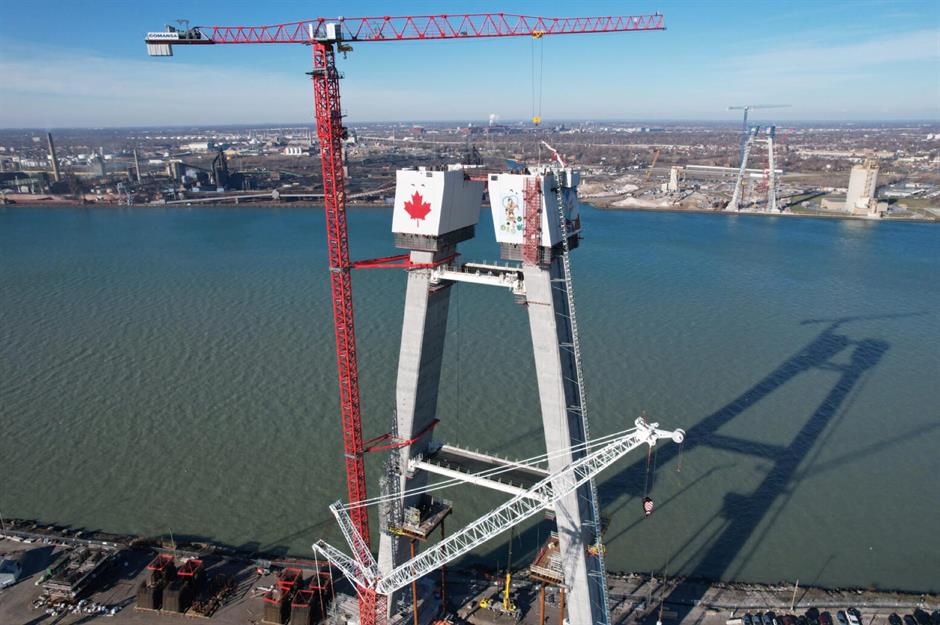
Local officials pushed for many years to build a third connection between Detroit and Windsor. However, Manuel (Matty) Moroun, owner of Detroit's Ambassador Bridge between the US and Canada, wasn’t happy about the idea.
Despite various lawsuits against both the state of Michigan and the government of Canada, he couldn’t block a new border crossing system that would directly connect Highway 401 in Windsor and I-75 in Detroit. The project started construction in 2018.
8. Gordie Howe International Bridge, Ontario: $6.4 billion
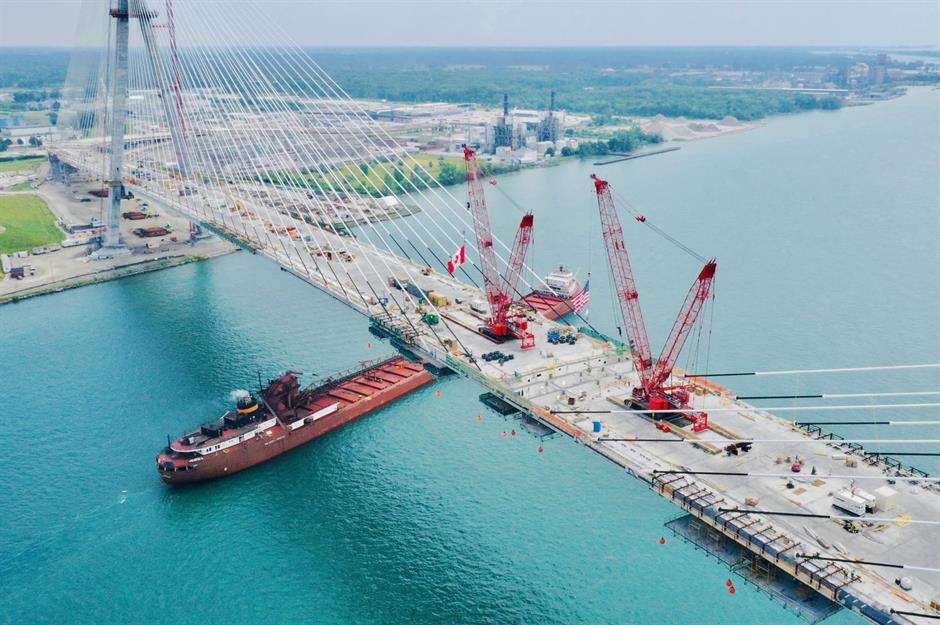
The megaproject includes the new Gordie Howe International Bridge as well as new facilities for Canadian and US Ports of Entry, and a 1.9 mile (3km) interchange in Michigan. Originally, all this infrastructure was expected to cost $5.7 billion, open in 2024 and be financed almost entirely by the Canadian federal government.
However, construction hit delays due to COVID-19, and it was June 2024 by the time the Canadian and US bridge decks met in the middle, completing the span. There's still some work ahead before the system opens to traffic in fall 2025. The delay has added nearly $1 billion to the price tag, which Canada will cover.
7. Montréal Blue Line Extension, Quebec: $7.6 billion
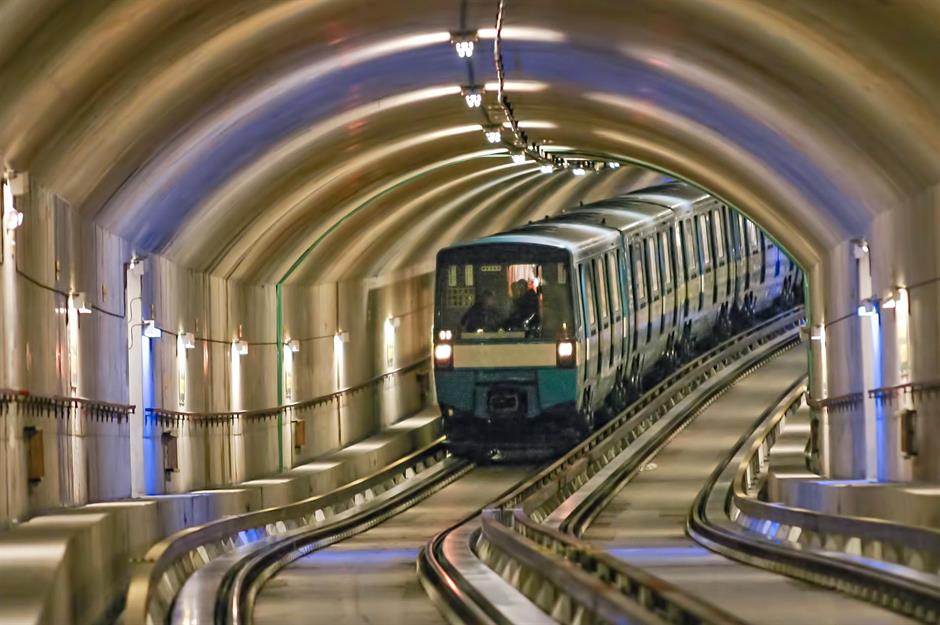
Construction is starting on a 3.6-mile-long (5.8km) extension to Montréal’s existing Blue Line, most of which will be in tunnels to avoid disruption through dense neighbourhoods above ground.
The project also includes five new metro stations, two bus terminals and a pedestrian tunnel, among other infrastructure. Transit agency Société de transport de Montréal (STM) had hoped to finish the extension by 2026.
Sponsored Content
7. Montréal Blue Line Extension, Quebec: $7.6 billion
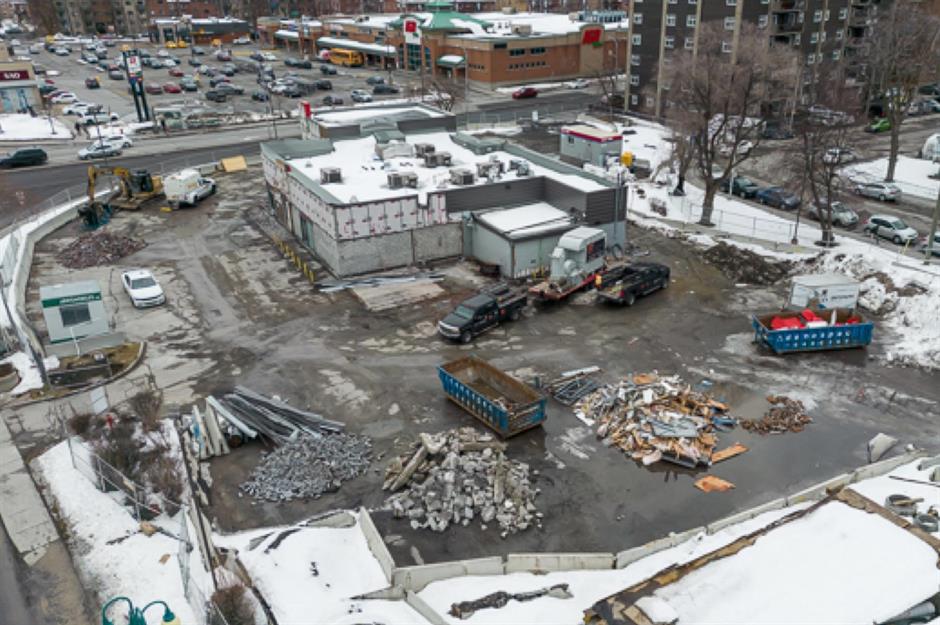
However, the project has been hit with numerous delays since the planning phase in 2013, pushing back the opening date to 2031.
This will come at a cost. Initially, the price had been set at $6.4 billion, but it’s now expected to be $7.6 billion. STM awarded a major construction contract in August 2024, and demolition work is clearing the way for tunnel and other heavy civil construction to start soon.
6. REM, Quebec: $7.95 billion
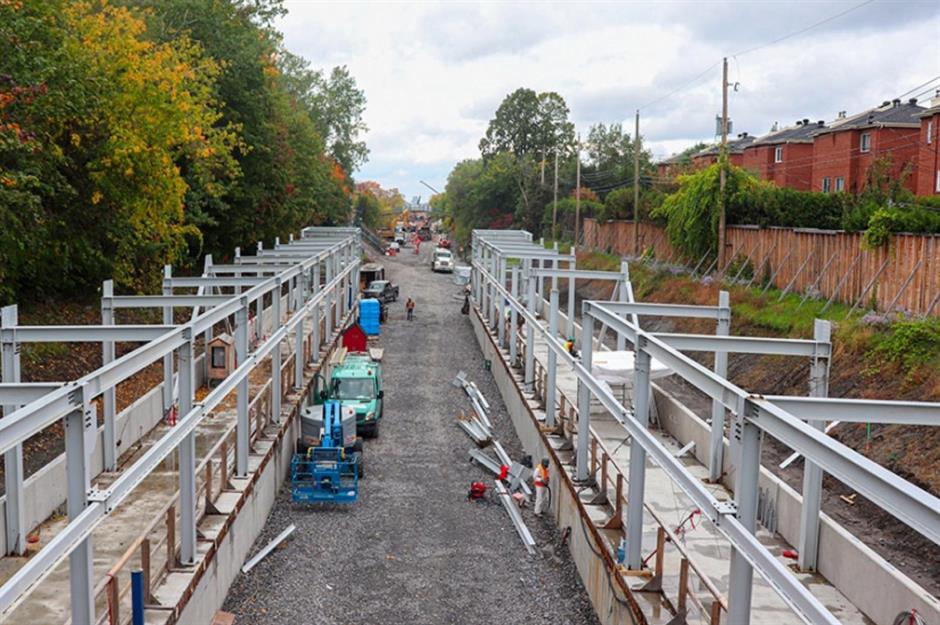
The metro extension isn't the only major project underway in the city. Montréal’s Réseau express métropolitain (REM) is an entirely new light rail network and was originally expected to cost $6.3 billion when it was announced in 2016 by the group that owns and operates it, CDPQ Infra. The project includes building 26 stations and 41.6 miles (67km) of track across Greater Montréal, including a tunnelled connection to the Montréal-Trudeau Airport.
The final cost has been revised several times, hitting $6.5 billion in December 2019 and $6.9 billion in June 2021.
6. REM, Quebec: $7.95 billion
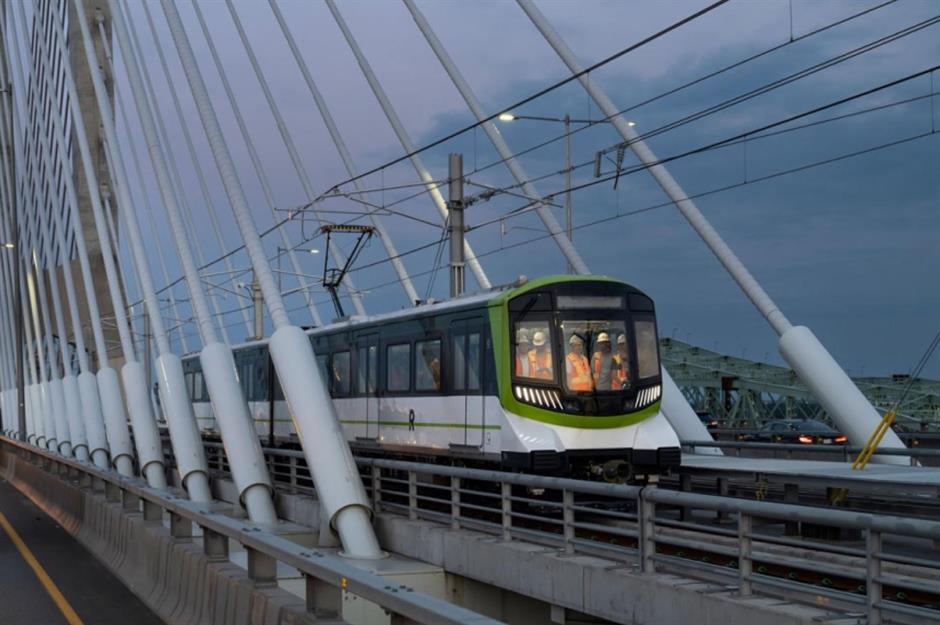
Another significant component of the megaproject has been converting the 100-year-old Mount Royal Tunnel to accommodate two light rail tracks and an underground station. Delays occurred when explosive material from the original construction that was still in the rock accidentally detonated in 2020. Thankfully, nobody was injured in the surprise blast.
The REM is currently in partial operation, and the rest of the system is expected to be in service by 2027. The total cost is now up to $7.95 billion.
Sponsored Content
5. Darlington Nuclear Refurbishment, Ontario: $12.8 billion
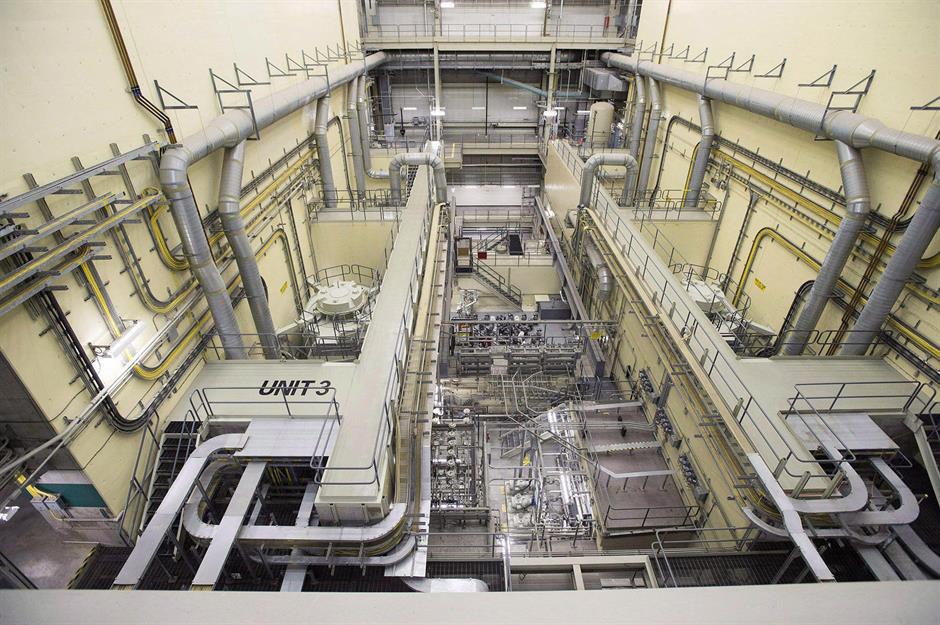
Provincially-owned utility firm Ontario Power Generation (OPG) shut down the first of four reactors at the Darlington Nuclear plant in 2016 for a 10-year refurbishment project.
The site provides as much as 20% of Ontario’s electricity needs, and upgrading all four units is expected to extend the plant’s lifespan for another 30 years. The total cost has been estimated at $12.8 billion.
5. Darlington Nuclear Refurbishment, Ontario: $12.8 billion
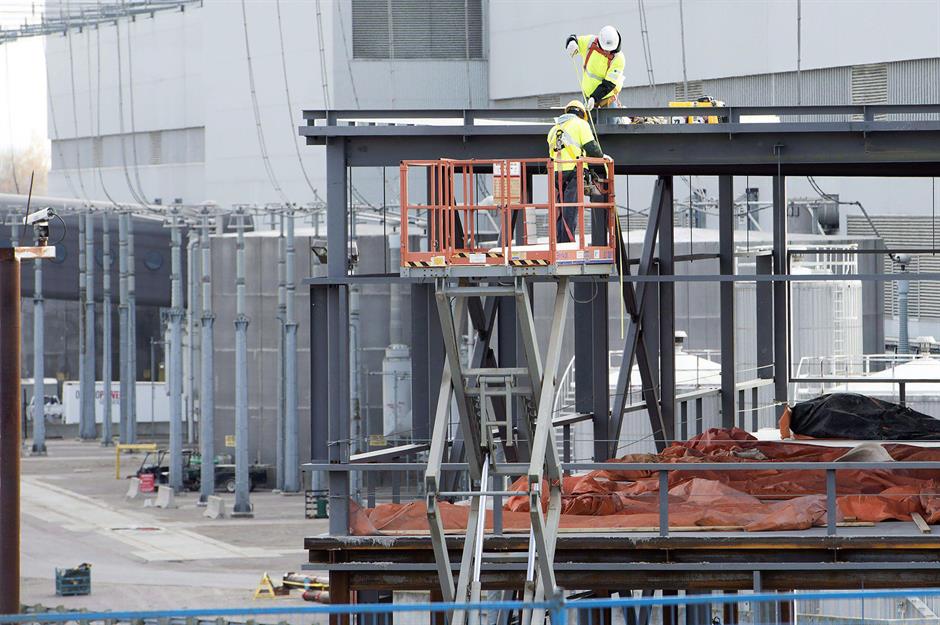
Unlike other projects on this list, the latest updates claim the Darlington Nuclear Refurbishment project is 86% complete and on schedule to finish (on time and on budget) in 2026.
In 2024, the province announced support for OPG to plan another nuclear refurbishment project, this one for the 50-year-old Pickering Nuclear Generating Station, Units 5 to 8. Initial planning for the works alone has a $2 billion budget, with the refurbishment expected to cost a similar amount to Darlington.
4. Eglinton Crosstown, Ontario: $13 billion
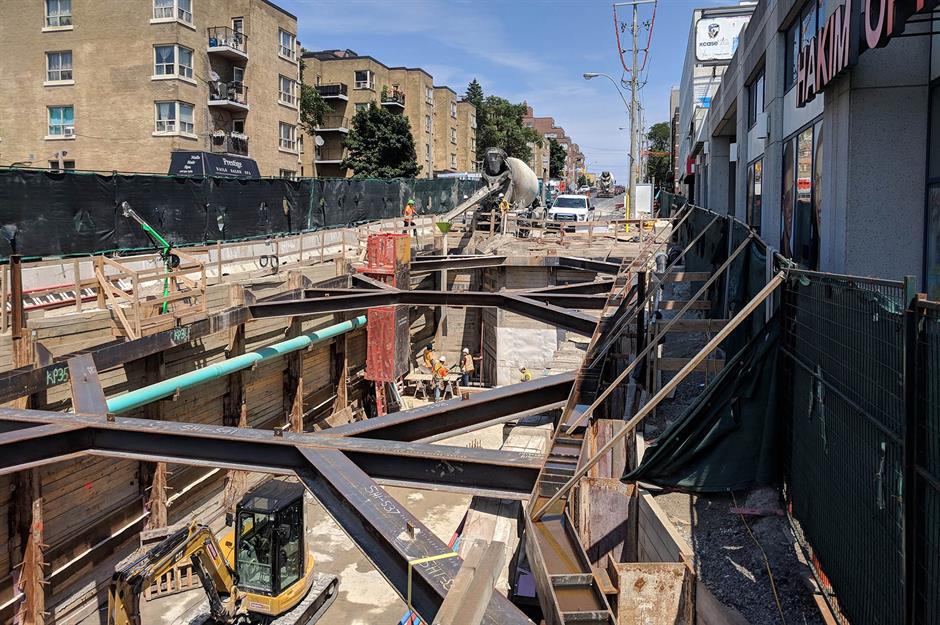
The idea for a transit line to run underground along Toronto’s Eglinton Avenue dates back to the 1980s at least. Work even started on a tunnel in 1994, but this was filled in a year later when that version of the project got scrapped.
When construction officially started in 2011 on yet another revised Eglinton Crosstown, the province announced the mainly underground 15.5-mile-long (25km) light rail transit line would be in service by 2020 at a cost of $8.2 billion. Yet this too would all change within the next year...
Sponsored Content
4. Eglinton Crosstown, Ontario: $13 billion
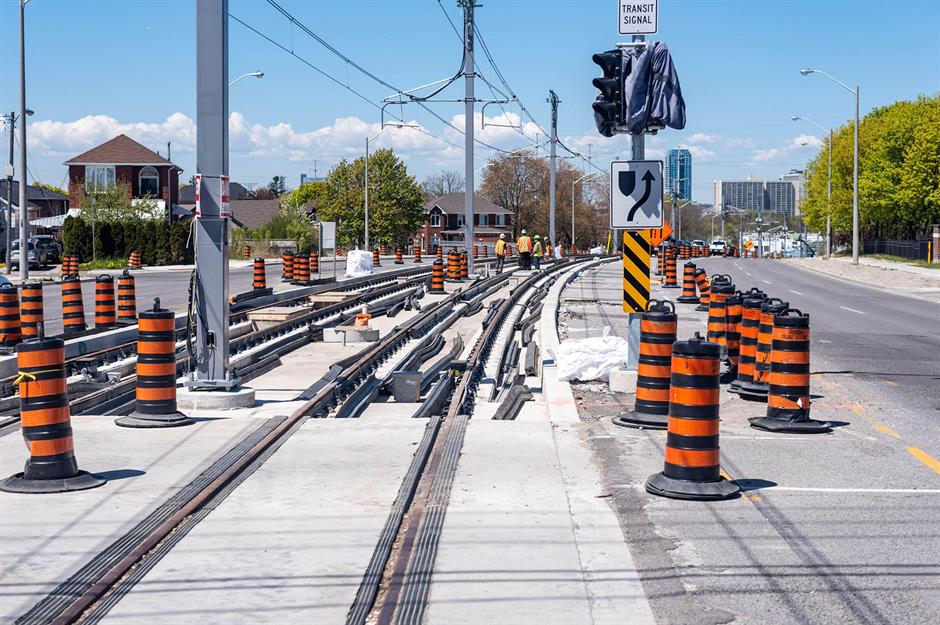
Currently, the Eglinton Crosstown LRT line is around 11.8 miles long (19km) and partially travels through twin-bore tunnels, with 15 of its 25 stations underground. All major construction work is completed, and the project is in the testing and commissioning phase.
However, no opening date has been released, with the transit agency Metrolinx citing software defects in the signalling and train control system. The new line is now expected to cost nearly $13 billion.
3. GO Expansion, Ontario: $13.5 billion
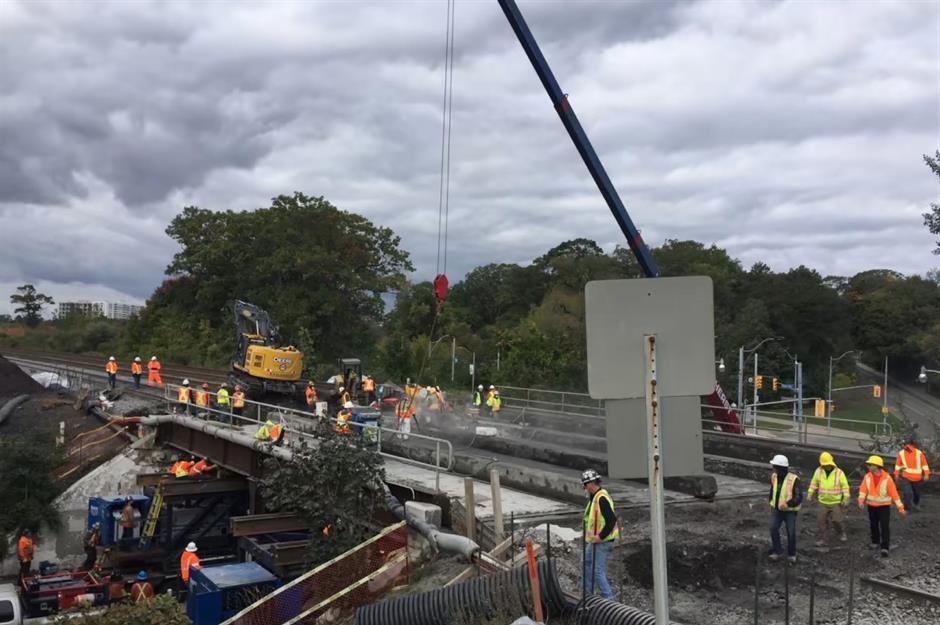
Along with increasing subway capacity, the Greater Toronto and Hamilton Area is completely overhauling its commuter rail network and converting it into an all-day rapid transit system. This includes extensive and complex engineering work like widening corridors, building new bridges and tunnels, and electrifying lines.
New stations will be added, and others upgraded, while new electric trains will be procured and integrated into the system.
3. GO Expansion, Ontario: $13.5 billion
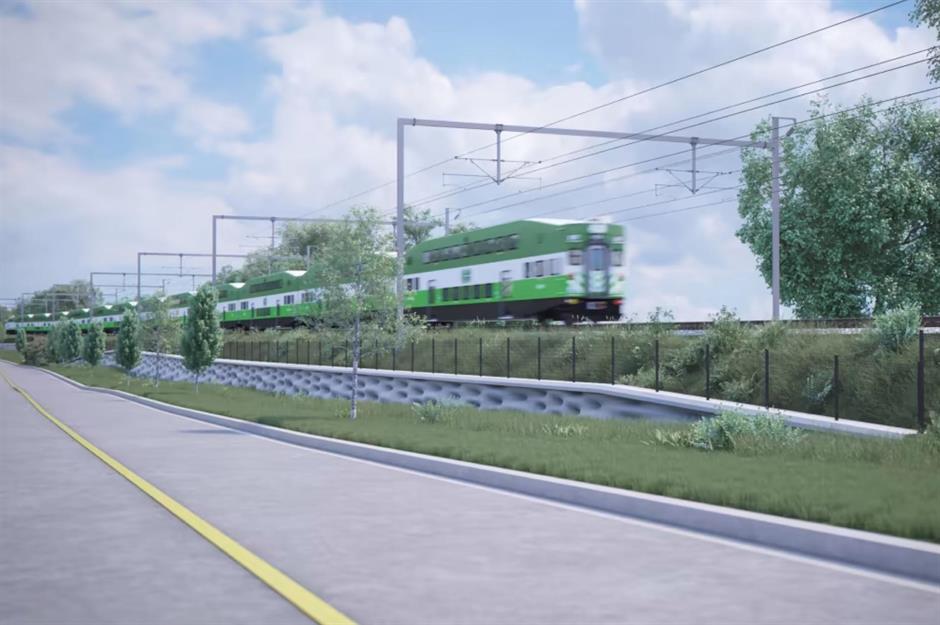
The sheer size of the expansion means the 200 interconnected projects have been divided into two different packages, Early and Complementary Works and On-Corridor Works, all of which have been tendered.
In 2014, the government pledged the system would be fully electrified by 2024. However, this milestone has yet to be realized on the $13.5 billion project, with the latest estimates suggesting it won't happen until 2032.
Sponsored Content
2. Site C, British Columbia: $16 billion
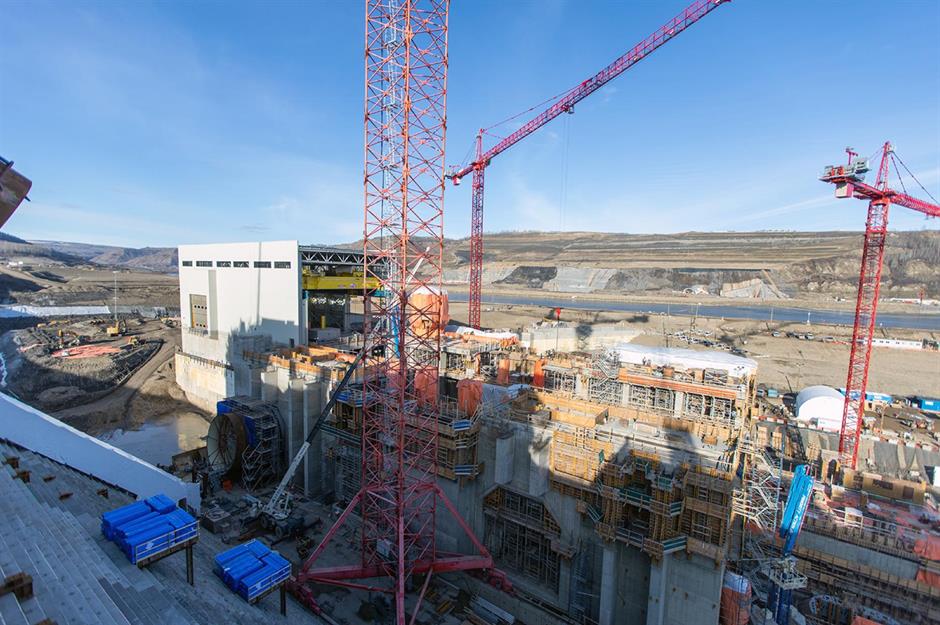
Construction on the third dam and hydroelectric generating station on the Peace River in northeast B.C. started nearly 10 years ago with a cost estimate of $10.7 billion. Located in a remote area, the project also requires new roads and highways, transmission lines, shoreline protection work and all the heavy civil infrastructure needed to build a hydroelectric dam.
Hit by rocketing project costs after the pandemic, the province considered cancelling the project in 2021, but that would have incurred sunken costs of at least $10 billion.
2. Site C, British Columbia: $16 billion
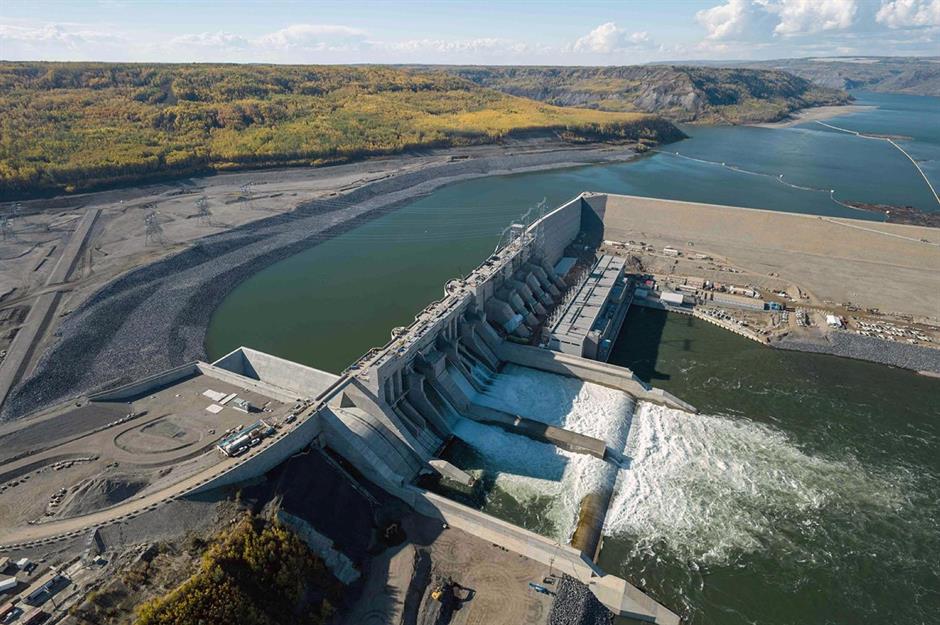
The price is forecast to be around $16 billion, making Site C one of the most expensive megaprojects underway in Canada. Most of the construction work is complete, and BC Hydro finished filling the reservoir in November 2024.
With four of six generators now online, the project will not be in service until fall 2025, a year later than scheduled. Once in operation, it will boost BC Hydro’s electricity supply by 8%.
1. Ontario Line, Ontario: $27.2 billion
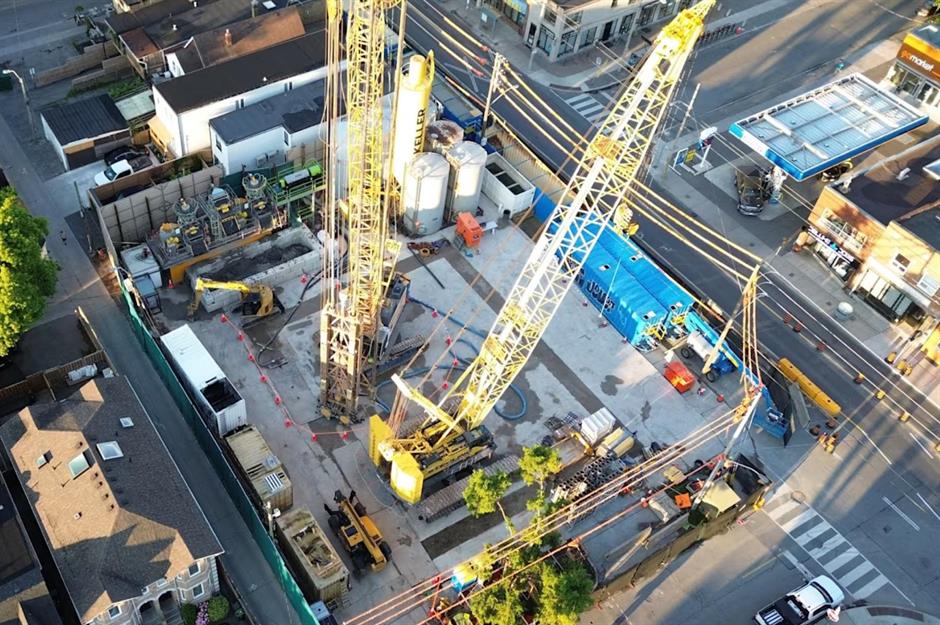
Part of the province's massive investment in transit, the Ontario Line will be an entirely new subway line, nearly 10 miles long (16km), connecting the Ontario Science Centre to Exhibition/Ontario Place in Toronto. More than half the route will run underground through new tunnels, while the rest will run along elevated and street-level sections of the track.
There will be 15 stations with numerous connections to the broader transit network. Construction officially started in 2021.
Sponsored Content
1. Ontario Line, Ontario: $27.2 billion
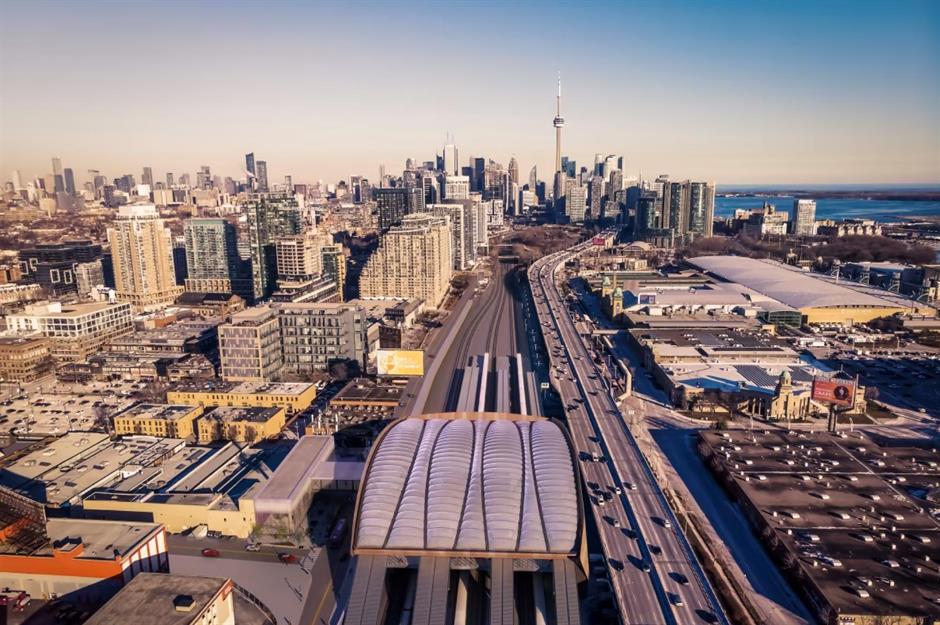
Officials estimated in 2019 that building a new transit line would cost $10.9 billion. This has since ballooned in price, with estimates scaled up to $19 billion in 2023 and later $27.2 billion in June 2024.
This new price includes the costs of building, maintaining and operating the trains for 30 years. However, this still makes the Ontario Line the most expensive megaproject underway in Canada.
Now discover the delayed megaprojects blowing budgets around the world
Comments
Be the first to comment
Do you want to comment on this article? You need to be signed in for this feature